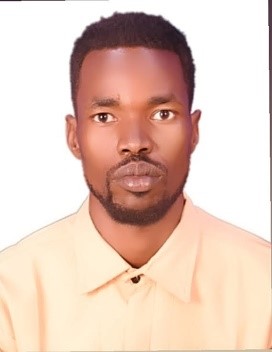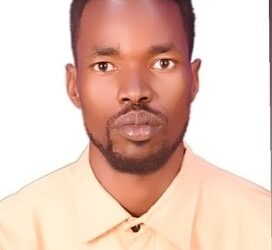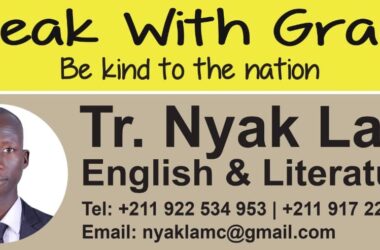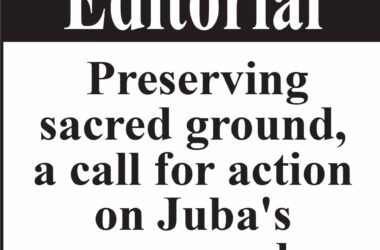By Deng Chol
When our country celebrates its independence anniversary it does so with thousands of South Sudanese gathering in Dr. John Garang Memorial Museum every 9-July, flags, and official speeches, praising the brave men and women who brought us freedom.
But for those of us who were born into the liberation struggle, the children of the fighters, there is little to celebrate about this independent anniversary.
We were raised on sacrifice.
Our fathers and mothers left everything behind homes, domestic jobs, safety to fight for a land they believed in.
We, their children, were caught in between. We grew up in the struggle, in war affect areas, without schools.
We endured separation, fear, and hardship all with the promise that one day after the liberation is achieved, in a free country, we would live with dignity.
But that day never came.
Instead, we watched in disbelief as those who once stood against the liberation those who cooperated with colonial governments, who opposed our fathers in battle, or who sat comfortably while others died became the leaders of our free nation.
They now run our country and government.
They enjoy the wealth and power that independence brought and forget who were behind this independent.
And what about us?
Many of us the children of the fighters are now begging on the streets.
We walk barefoot. We sleep on pavements.
In search for food in bins.
Our parents are either dead, broken by war, or living in silence and poverty.
The promises made to them and to us have been forgotten.
The very people who gave their lives for this land have been betrayed.
It is not just a political failure. It is a moral one.
We do not ask for charity. We demand recognition. We demand that this nation confronts the truth: that the blood of our parents watered this freedom, and their children should not be left to starve on the streets.
History cannot be rewritten, but it can be honored with justice, dignity, and action.
If we truly are a liberated nation, then let us start by looking at our own streets. Let us see the barefoot children sleeping there not as criminals or statistics, but as the forgotten sons and daughters of heroes.
Let us ask ourselves: What was the struggle for?
Until that question is answered with deeds and actions, not speeches, the liberation struggle, is not yet over.




